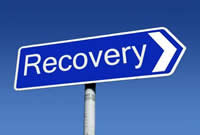Drug rehab is a generic term which describes many different types of addiction treatment geared specifically toward the goal of the cessation of drug use. When a person struggles with drug addiction, as millions of people in the US do, alternatives for recovery are to complete a drug rehabilitation program or to attempt to kick drugs on their own, which is usually unsuccessful and can lead to life-threatening withdrawal symptoms. Drug rehab programs are typically staffed with drug addiction treatment professionals who follow treatment guidelines to help the recovering addict avoid the common pitfalls of recovery.
Types of Drug Rehabs

Generally, drug rehabs can be separated into two distinct types of drug rehabilitation; residential drug rehabs and outpatient drug rehab programs. As the names suggest, the obvious and most significant distinction between these types of rehabilitation is that residential drug rehabs require the patient to live at the facility, while outpatient rehab programs allow the patient to stay in their own home during treatment, utilizing the drug rehab facility during the day to attend classes, meetings or to get counseling. Statistics show that residential drug rehabs have a higher success rate than outpatient drug rehab programs; however, residential drug rehabs do tend to cost more and require a significant disruption in the patient daily life.
Typical Components of Drug Rehab
Whether you are interested in residential or an outpatient drug rehab program, drug rehab generally consists of three phases of treatment:
Drug Detox – During this phase of drug rehab, the drug rehab staff will work with the patient to remove the drug of addiction from the patient’s system. Detoxing from some drugs, like alcohol, heroin and prescription pain medications, will often require medical supervision as coming off these drugs cold turkey can be very dangerous and may even cause death.
Counseling – Counseling is the most important factor in turning a life of addiction back into a life. When considering which drug rehab program to enter into, consider the patient’s counseling needs first. Depending on the level of addiction, the specific drug of addiction and the personality of the addict, some patients may require more intense counseling for longer periods of time to achieve successful rehabilitation from addiction. Additionally, some drug rehab facilities offer special programs for dual diagnosis, while others facilities may offer special counseling for women or adolescents. It is important to select a drug rehab that suits the specific counseling needs of the person in recovery.
Aftercare – Once drugs have been flushed from the patient’s system and the underlying issues of addiction have been managed through counseling; the patient must begin their life anew without falling back into addiction. Aftercare helps people who have already completed a rehab program transition to a life of sobriety. Generally, aftercare teaches those new to sobriety how to handle the everyday struggle to maintain their sobriety while returning to the stresses of their lives.





 Need More Help?
Need More Help?


